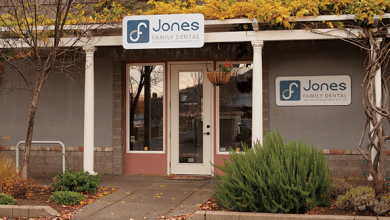Treating the Patient not the Insurance Company
Understanding dental benefits and insurance is challenging. There are as many different plans as there are contracts, and dental insurance is not the same as medical insurance. In fact, it’s not really “insurance” at all.
Dental benefit plans are designed to share the cost of dental care. While most plans potentially cover 50 percent or more of the cost of dental services, your plan may not cover the total cost of your treatment. Dental benefit plans are not really “insurance” in the traditional sense but are designed to provide you with assistance in paying for your dental care. A plan may have limitations on the number of office visits, hygiene visits, radiographs (X-rays) and various treatments it will cover. When purchasing individual dental insurance (rather than group insurance through your employer), be aware that major procedures may not be covered in the first year, and even then the benefit is likely to be only half of what the dentist charges. You’ll need to set aside money in a health savings account or personal fund so you’re not caught short if you need major work.
I have listed a few frequently asked questions and I’ll attempt to answer them.
- “Why doesn’t my insurance cover all the costs of my dental treatment?”
Dental insurance isn’t really insurance at all. It is nota payment to cover a loss. It is actually a benefit provided by employers to help employees cover the cost of routine dental treatment. An employer will buy a plan (one of many offered) based on the amount of the benefit and the cost of the premium for the company or the employee. Most plans cover only a part of the total fee for dental services. - “Why aren’t my exams and cleaning, among other procedures, 100% covered like my plan says?”
The insurance company typically allows100% as payment for the procedure. It isn’t always what the dentist may charge. An insurance company may allow $60 as payment for an exam, but the office fee is $80. This leaves $20 that the patient is responsible for. - “Why did my insurance company change the treatment to something less expensive?”
The benefits are negotiated and many times will provide only for less expensive procedures. Obviously, if a tooth needs a crown, but a filling is all that’s covered, it does not mean that the dentist should do a filling. At least somebenefit is paid, and that will be applied to the fee for the recommended treatment. It is the responsibility of the dentist to provide the best treatment. It is the insurance company’s responsibility to save (make) money. - “Where do the allowed payments come from?”
Most insurance companies call these payments “UCR,” which stands for usual, customary, and reasonable. But these don’t mean what they sound like. They are actually a list of payments negotiated by the employer and insurance company. The amounts are related to the cost of the premium. In other words, the lower the allowed amount, the lower the premium paid by the employer or whoever is providing the plan. - “What good is my insurance if I always have a balance?”
Even if the fee is not fully “covered,” at least it pays part of it. This should be stressed to the patient. Any amount reduces the out-of-pocket expense for the patient. Something is better than nothing! - “Why doesn’t my dentist participate in my network?”
We only participate in a few chosen plans at Jones Family Dental because it affects our relationship with patients. We are uncomfortable with the restrictions and demands that are placed on us by “network” plans. Often network plans restrict what we can and cannot do and often fees reimbursed are so low that a business would need to work with a high volume model where quality of care may suffer. - “Can I do anything if my insurance doesn’t cover the treatment I need?”
The coverage is between the patient, the employer or provider, and the insurance carrier. The dentist has no power to make the carrier pay for recommended treatment. There can be some intervention on the part of the dentist, but it is limited at best. Some ways we can help intervene is by appealing a denial. This involves writing a complete narrative and sending in further necessary photos or other supporting documents to convince the panel to re-evaluate the necessity of the treatment in question. If the denial is not overturned the patient simply must be responsible for the total cost of treatment. Patients might be able to file complaints with the state insurance board or commission if there is a legitimate reason.
The bottom line is this: Dr Jones will recommend and deliver treatment based on your best diagnosis and prognosis, and then educate his patients based on that. He works with you to establish an individual plan for wellness. Insurance is not beholden to your health only to the agreement of benefits and services that have been contracted. How we work to get insurance to accurately pay for contracted services rendered is another article we will address in the future.




